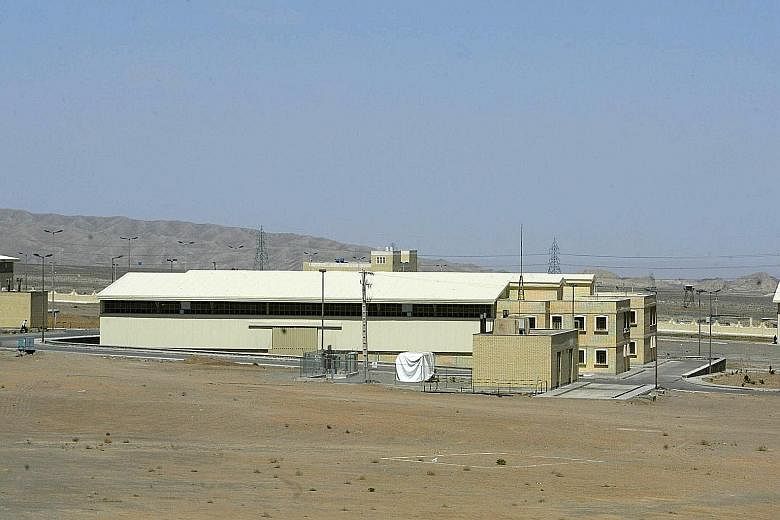The historic Iran nuclear deal landed with a thud in Washington on Tuesday - setting the stage for a challenging battle to get the accord through Congress while also raising questions about the future of the deal should a Republican win the presidency.
Though conservatives were largely expected to oppose the deal, the speed and ferocity of the pushback were noteworthy.
Republican candidates took turns to denounce the deal and call on their colleagues in Congress to block it.
Former Florida governor Jeb Bush dismissed the deal as appeasement; Wisconsin Governor Scott Walker said it would be remembered as one of America's "worst diplomatic failures"; and Florida Senator Marco Rubio said it undermined national security.
Mr Walker and Mr Rubio have also said they would repudiate the deal if they become president.
Similarly, House Speaker John Boehner said: "If in fact it is as bad a deal as I think it is at this moment, we will do everything we can to stop it."
Also worrying for President Barack Obama is the reticence among lawmakers from his own party. Democrats largely refrained from committing support to the deal, preferring to take a wait-and-see attitude.
House Minority Leader Nancy Pelosi commended the leadership of the President and Secretary of State John Kerry but said Congress would have to review the agreement closely.
"We must maintain our vigilance. All options remain on the table should Iran take any steps towards a nuclear weapon or deviate from the terms of this agreement," she said.
Taken together, the reactions present two key issues about the future of the deal in the US: Can Congress block the nuclear deal or, if not, can a Republican president undo it?
For pundits, the answer to both is "Yes, but it probably won't happen".
On the Congress question, what is working in favour of the deal is the large number of Democrats that need to be swayed to vote against what is set to be the defining policy achievement of their President.
A law passed earlier this year gives lawmakers 60 days to review the deal.
While Congress does not need to explicitly approve the deal for it to take effect, it can vote to disapprove and block the lifting of sanctions.
Given that Mr Obama has already vowed to veto any attempts to block it, the only way lawmakers can still get in the way is if they secure a veto-proof two-thirds majority in the House and Senate.
That seems unlikely because it would require more than 20 per cent of Democrats in each chamber to vote against the deal.
Council on Foreign Relations Senior Fellow Philip Gordon said the President's veto threat has made it more likely the deal will get the thumbs down from Congress.
"I think knowing that the President can veto will make it easier for some of them to vote against it because they are not going to own the responsibility for voting against it," he said.
With regard to the prospect of a Republican president unravelling the deal, the move is theoretically possible but carries unacceptable risk.
"If we try to reimpose sanctions on Iran and no one follows, then we have the worst of all worlds,"
Mr Robert Einhorn, a former Iran nuclear negotiator at the State Department, told Politico.
Mr Gordon added that if Iran was keeping its end of the bargain, the idea of returning to the status quo would be difficult to stomach.
"You'll hear lots of grumbling, you'll see the Republican presidential candidates being sharply critical of the agreement but that is different from actually becoming president and abolishing something that has limited the Iranian nuclear programme," he said.

